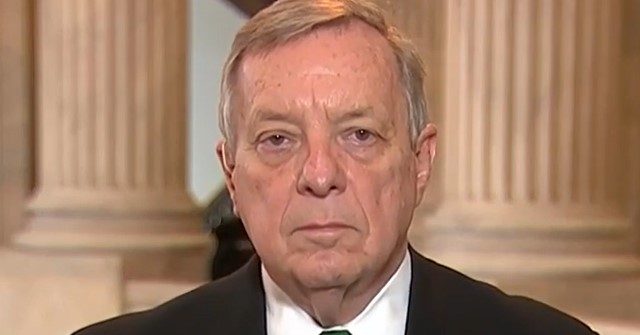On CNN’s “State of the Union,” Senator Dick Durbin (D-IL) expressed a nuanced perspective on President Joe Biden’s recent decision to grant his son Hunter a pardon. In the face of criticism about the pardon, particularly from Senator Michael Bennet of Colorado, who claimed it undermines public confidence in the fairness of the justice system, Durbin defended Biden’s actions as stemming from deep familial love. Notably, during his campaign, Biden had repeatedly asserted that he would not pardon Hunter, which has led to debate about the implications of his reversal, especially in regard to the potential perception of bias or favoritism in the justice system.
Durbin emphasized his long-standing friendship with Biden, highlighting their relationship of over two decades, marked by personal discussions concerning family challenges and dynamics. He pointed out Biden’s difficult past, including the tragic loss of his wife and one of his sons, which adds a layer of understanding to Biden’s motivations as a parent. Durbin’s remarks cultivated the image of Biden as a devoted father attempting to shield his son from the consequences of his struggles, particularly relating to addiction and other challenges that Hunter has faced over the years.
Acknowledging the complexities surrounding the pardon, Durbin recognized the concerns raised by Senator Bennet about the erosion of trust in the justice system stemming from this move. While he did not outright dismiss these concerns, he framed the pardon as a compassionate act rather than a political maneuver. Durbin’s perspective suggests that the emotional and personal dimensions of Biden’s decision weigh heavily on his interpretation, elevating the discussion from legal implications to a more human approach to parenting in the face of public scrutiny.
Hunter Biden has faced numerous legal challenges, including gun and tax-related charges, as well as allegations linked to his business dealings overseas. The grant of a blanket pardon to cover any past offenses over the last eleven years—including those associated with his struggles during addiction—has provoked significant debate. Critics worry that such a pardon sets a precedent that might be perceived as privilege for the politically powerful, therefore raising alarms regarding equality under the law and the integrity of the judicial process.
Durbin’s reflections on Biden’s motives also point to a broader conversation about the intersection of personal responsibility and justice. While he acknowledges the political ramifications of the pardon, he urges people to consider the emotional toll on a father attempting to support his child through significant hardships. This viewpoint potentially resonates with those who can empathize with the challenges of familial loyalty and support amid public challenges, fostering a dialogue that extends beyond the legality of Biden’s actions into the realm of personal ethics and values.
In conclusion, the pardon of Hunter Biden has sparked considerable controversy, balancing between the virtues of parental love and the responsibilities of public accountability. Senator Durbin’s insights invite a deeper exploration into what it means to exercise mercy and compassion within the framework of justice, provoking both support and criticism from various sides. As the political landscape continues to evolve, the ramifications of Biden’s decision may resonate far beyond the immediate situation, highlighting the intersecting narratives of family, justice, and political integrity in contemporary discourse.

